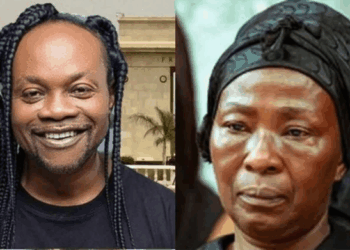Nana Prempeh, a prominent figure in the Ghanaian entertainment industry, has expressed concern over the steady decline of Ghanaian local movies, citing several contributing factors. In an insightful conversation with Blutut Africa on Plan B Show Biz, Nana Prempeh highlighted the challenges facing the industry and called for urgent reforms.
One of the critical issues he pointed out was the emergence of new actors, which, while promising, has been stifled by the dominance of the same familiar faces. According to Nana Prempeh, “It’s always about the usual faces,” and this lack of diversity in casting has limited the scope of creativity and storytelling in local films.
“Viewers are not seeing fresh talent or new perspectives, which has contributed to a lack of interest in Ghanaian productions.
Prempeh further criticized the industry for failing to depict Ghana’s rich cultural values. He stressed that many movies do not accurately represent the country’s traditions, history, or the realities of its people, which has caused a disconnect between films and the Ghanaian audience. The cultural essence, he believes, is vital for engaging viewers and creating content that resonates on a deeper level.
Another major issue is the failure of the National Film Authority to regulate the content being produced. Prempeh noted that many of the movies released in recent years are full of nudity and inappropriate content, which not only offends many viewers but also erodes the integrity of Ghanaian cinema. “Some of these films are left insulting and full of nudity,” he remarked, calling for stricter guidelines and oversight to preserve the dignity of local film production.
Nana Prempeh also bemoaned the lack of creativity in the industry, attributing it to filmmakers not thinking beyond their usual target audience. He believes that by creating films that appeal to larger, more diverse groups, the industry can regain its momentum and expand its reach both locally and internationally. Ghanaian filmmakers, he argued, need to push boundaries and think more broadly to meet modern demands.
Additionally, Prempeh raised an important issue regarding the lack of focus on children’s entertainment. Unlike other countries, Ghana does not have a dedicated group or platform for producing films that focus on children’s stories. He pointed out that this is a significant gap in the market, as children’s films have the potential to nurture young minds and instill cultural values from an early age.
In conclusion, Nana Prempeh’s analysis paints a clear picture of the multiple challenges facing the Ghanaian movie industry today. From the repetitive casting and cultural misrepresentation to regulatory failures and lack of creativity, the industry needs a comprehensive overhaul to regain its former glory. As he emphasized on Plan B 104.5FM, it’s time for the industry to wake up and embrace innovation while staying true to its roots.
*Blutut Africa*










Discussion about this post